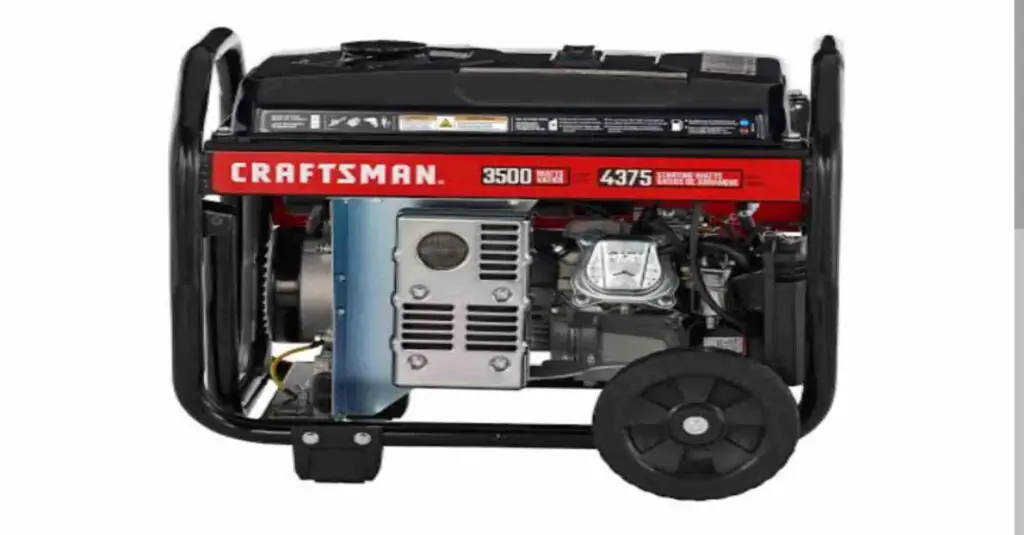As an Amazon Associate, we earn from qualifying purchases. This does not affect the price you pay or the quality of the products you buy. For more information, please read the full affiliate disclosure here.
Going through the replies we got from our newsletter, we found out that a lot of our audience doesn’t truly know the differences between gasoline generators and diesel generators.
They don’t know how they function and what places the two can be used and not used except that one is for diesel and the other is for gasoline.
And, whenever it comes to choosing a generator, one of the biggest decisions they are confused about — is the need to go with a diesel generator or a gasoline generator.
Hence, here at Generator Hacks, we’ll take a closer look at the differences between the two types of generators, and help you decide which one is right for you.
What You Should Know About Diesel Generators

Diesel generators use diesel fuel to generate electricity. The generators are connected to an engine that burns diesel fuel to produce mechanical energy, which is then converted into electrical energy.
They are commonly used in commercial and industrial applications, as well as for backup power in residential settings.
What You Should Know About Gasoline Generators

Gasoline generators on the other hand use gasoline to generate electricity. They work similarly to diesel generators, with the generator connected to an engine that burns gasoline to produce mechanical energy, which is then converted into electrical energy. Gasoline generators are commonly used for residential and recreational purposes.
Differences between Diesel and Gasoline Generators
1. Cost
When it comes to cost, gasoline generators are generally less expensive than diesel generators. This is because gasoline engines are simpler in design compared to diesel engines, and require fewer parts. Diesel generators, on the other hand, are more expensive due to their higher durability and more complex engine design.
2. Fuel Efficiency
Diesel generators are known for their fuel efficiency, as they can produce more power per gallon of fuel compared to gasoline generators. This means that diesel generators are more cost-effective over the long term, as they require less fuel to produce the same amount of power compared to gasoline generators.
3. Power Output
Diesel generators are typically more powerful than gasoline generators, making them a better choice for industrial and commercial applications where high power output is required. Gasoline generators are better suited for residential and recreational use, as they typically have lower power output.
4. Maintenance
Diesel generators require less maintenance compared to gasoline generators due to their simpler engine design. Diesel engines are also more durable and can withstand heavy use, requiring fewer repairs and replacements compared to gasoline engines. Gasoline generators, on the other hand, require more frequent maintenance and may require more repairs and replacements over time.
5. Noise Level
Diesel generators tend to be louder than gasoline generators, making them less ideal for residential and recreational use. Gasoline generators are generally quieter, making them a better choice for environments where the noise level is a concern.
6. Environmental Impact
Diesel engines produce more emissions compared to gasoline engines, contributing to air pollution. Gasoline engines, on the other hand, produce fewer emissions, making them more environmentally friendly. However, it’s worth noting that both diesel and gasoline generators can have negative environmental impacts, and it’s important to choose a generator that meets your specific needs while minimizing your environmental footprint.
Which One Should You Choose?
When it comes to deciding between a diesel generator and a gasoline generator, you must consider the one that meets your specific needs and use case.
Here are some factors you can consider to meet such needs:
- Residential Use: If you’re looking for a generator for residential use, a gasoline generator is likely the better choice. Gasoline generators are typically less expensive, quieter, and more portable than diesel generators, making them a good fit for powering your home during a power outage.
- Commercial Use: For commercial applications, a diesel generator is typically the better choice due to its higher power output and greater durability. Diesel generators are commonly used in construction sites, data centers, and other commercial applications that require a reliable and powerful source of backup power.
- Industrial Use: In industrial settings, diesel generators are the go-to choice due to their high power output and ability to withstand heavy use. They’re commonly used in manufacturing plants, oil rigs, and other industrial settings that require a reliable and powerful source of backup power.
- Recreational Use: For camping trips and other recreational activities, a gasoline generator is typically the better choice. Gasoline generators are more portable and lightweight, making them easier to transport to remote locations. They’re also quieter, making them a better fit for environments where the noise level is a concern.
Go for Your Choice
Choosing between a diesel generator and a gasoline generator, there’s no one-size-fits-all solution. And if you are to go for your choice, you must consider your specific needs and use case, and weigh the advantages and disadvantages of each type of generator.
Ultimately, the generator you choose should be able to provide reliable power when you need it most while minimizing your environmental footprint and meeting your specific needs.
However, if you’ve got a problem picking the one that best meets your needs, and you want a consultation or recommendation, you can book a session with us.
🔌 Generator Tools & Social Hub
Maximize your generator knowledge! Use our calculators and join our community for expert tips:
Stay connected for updates and exclusive content:
📘 Facebook Page 🐦 X (Twitter) 📌 Pinterest 🔒 Private Facebook GroupDiscover more from Generator Hacks
Subscribe to get the latest posts sent to your email.

